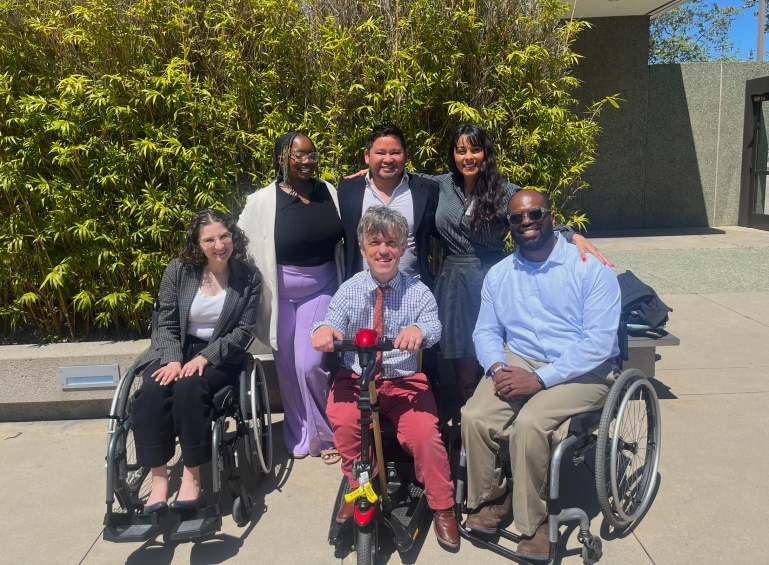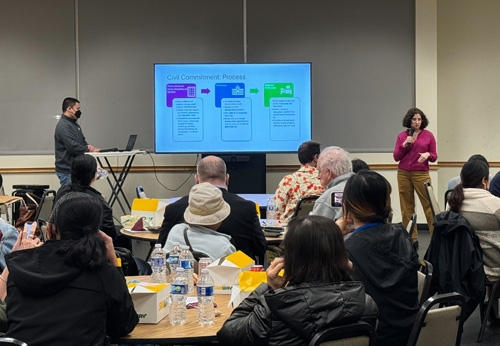2024 Annual Report - Finding Common Ground at Community Conversations

2024 Annual Report - Finding Common Ground at Community Conversations
Breakthroughs Finding Common Ground at Community Conversations
After a series of harmful mental health laws passed, DRC and other partner organizations created a conversation series to address people’s questions and concerns.
Sometimes there’s just no replacement for being in a room with other people. Sharing a space and a meal together can cut through divides that might otherwise exist. That was the goal of community conversations.
The last few years in California have brought a trio of laws that DRC considers a backslide in progress for people with mental health disabilities. CARE Court, Senate Bill 43, and Proposition 1 work to strip people of their autonomy and were written without input from the communities they will most impact. This led to confusion from people on how the laws would affect them.
Eight community conversations took place in counties across the state as DRC, California Pan Ethnic Health Network and other partner organizations worked to share updates about mental health laws that will impact their communities. Conversations happened in Orange County, San Diego, Oakland, Richmond, Sacramento, Lompoc, Santa Maria, and Bakersfield.
“I am grateful to have traveled to key locations throughout our great state to meet people and gain their perspectives on the series of highly politicized mental health bills,” said Advisor to DRC's Investigations Unit Vanessa Ramos. “These locations allowed us to better understand diverse perspectives.”
“We were getting so many questions from community members about what these new policies mean, how to digest them, how to understand their actual impact on folks directly affected by it,” said DRC Policy Analyst in the Intellectual and Developmental Disability Practice Group Sabrina Epstein.
DRC Policy Analyst Sabrina Epstein presenting at a community conversation discussing new mental health laws and their impacts.
The conversation series came about in response to those questions. Each conversation was different, because the goal was to meet folks where they were at, both literally and figuratively. Some conversations involved sharing meals together or telling personal stories. Other conversations were in central locations or involved follow-up discussions. All of them make a point to center the lives and voices of people these laws would most impact.
Sabrina said that each conversation aimed to share knowledge with community members, rather than be a time where organizations came in and lectured people. She shared a powerful example of when an elder from the Cambodian community in Orange County spoke about his experience with mental health. “It really just set the tone for a much deeper conversation, and I was really grateful that he courageously shared his story with all of us that day,” Sabrina said.
Breakthrough
The benefit of hosting the conversations in-person was the ability to go deeper on a topic. For instance, Sabrina said that it was helpful to be together to talk about how mental health issues are a disability and part of the disability community. Another benefit was the opportunity to share space with folks who didn’t fully agree with the concerns around the new laws. Despite those differences, people were able to come together with curiosity and work towards solutions together.
“We were really building some deep connections and empowering the community to do their own analysis and act on behalf of their own communities,” Sabrina said.
It will be a long road of self-advocacy and continued policy advancement for people with mental health disabilities, but these necessary conversations were a strong start.







